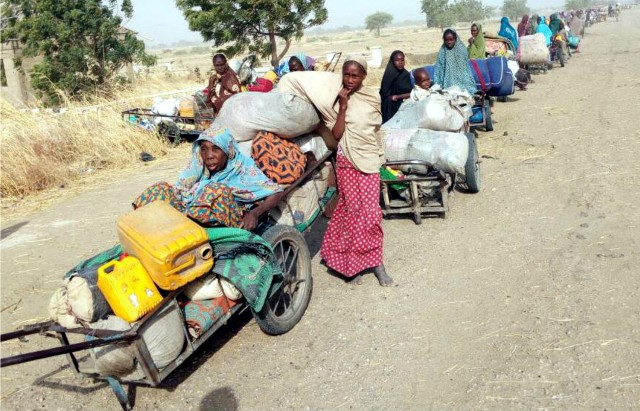Business
2018 Budget: Expert Tasks FG, NASS On Early Passage

A financial expert, Prof. Sheiffdeen Tella has called on the Federal Government to work closely with the National Assembly to ensure speedy passage of 2018 budget.
Tella, a Professor of Economics at the Olabisi Onabanjo University, Ago-Iwoye in Ogun, told The Tide source in Lagos that this was to avoid returning the country to recession.
President Muhammadu Buhari had on November 7, 2017 presented before a joint session of the National Assembly, a budget proposal of N8.612 trillion for the 2018 fiscal year.
This represents 16 per cent increase of N7.298 trillion over the 2017 budget.
Our source reports that budget had started generating controversy since it was presented by the President Buhari.
Tella said that Federal Government should work on the NASS to pass the budget on time and set to start its implementation immediately.
The expert said that budget implementation could only be achieved with early passage of the budget.
He said that all attempts should be made to grow the economy faster to avoid returning the country to recession.
“Federal Government should start implementation of the capital aspect of the budget, particularly power, road and rail infrastructure and mining as well as financial sector development to engineer cheap or affordable credits for industrial sector.
“Increase in money supply is likely to increase due to increased political activities, but that will be from the second quarter.
“It can cause inflation, if improved production does not begin from the end of first quarter.
“So, budget implementation must start early if the budget is passed early in the year.
“All efforts must be made to grow the economy faster to avoid returning to recession,” Tella said.
He said that the progress made on the economy in 2017 would leap frog in 2018 on improved policy implementation.
The economist said that the pace of diversification of economy, through agriculture and industrialisation, should be pursued steadily and consistently with appropriate corporation between monetary and fiscal policy makers.
Tella said the country should be interested in domestic production of refined fuel than importation, adding that action on modular refinery should be intensified.
He said that power supply should progress more in such that alternative energy sources like solar and wind should be improved upon and diverted to non-commercial areas.
Tella said that energy from gas and thermal sources should be diverted for industrial use.
He said that improvement in power supply would bring down the cost of production greatly for effective competition of domestic goods and imported.
According to him, the use of local raw materials in production will also reduce importation and cost of production arising from exchange rate problems.
On the capital market, he said that the market performance in 2017 was quite impressive and would likely continue in 2018 with the right policy.
“If interest rate falls and businesses go to the market to raise funds, the market performance will improve faster, otherwise if economy remains sluggish, the capital market can suffer from patronage,” Tella said.
Business
MWUN Backs Nigeria’s Bid For IMO’s Category C Seat
Business
Food Security: FG To Review Nigerian Agric laws
Business
Okpebholo Charges Committee To End Herders, Farmers Clash In Edo … Inaugurates Boundary Committee
-
News3 days ago
Tinubu Inaugurates Institute Of Vocational Training, 100 CNG Buses In Kaduna
-

 News2 days ago
News2 days agoRSG Moves To Diversify Rivers Economy …As Farmers, Others Laud Ibas Over Implementation Of RAAMP
-
Business3 days ago
PINL Initiatives, Operational Etiquette Excites Bayelsa Stakeholders
-
Business3 days ago
MWUN Backs Nigeria’s Bid For IMO’s Category C Seat
-
Politics3 days ago
Members’ Ego Responsible For PDP Crisis, Not About Atiku Alone -Gov Lawal
-

 News3 days ago
News3 days agoStudent Loan Application Process Now Fully Digitized -NELFUND
-
News3 days ago
Media Powerful, Central Player In Fight Against Insurgency -CDS
-
Rivers3 days ago
Foundation Tasks Parents, Families In Moral Rectitude

